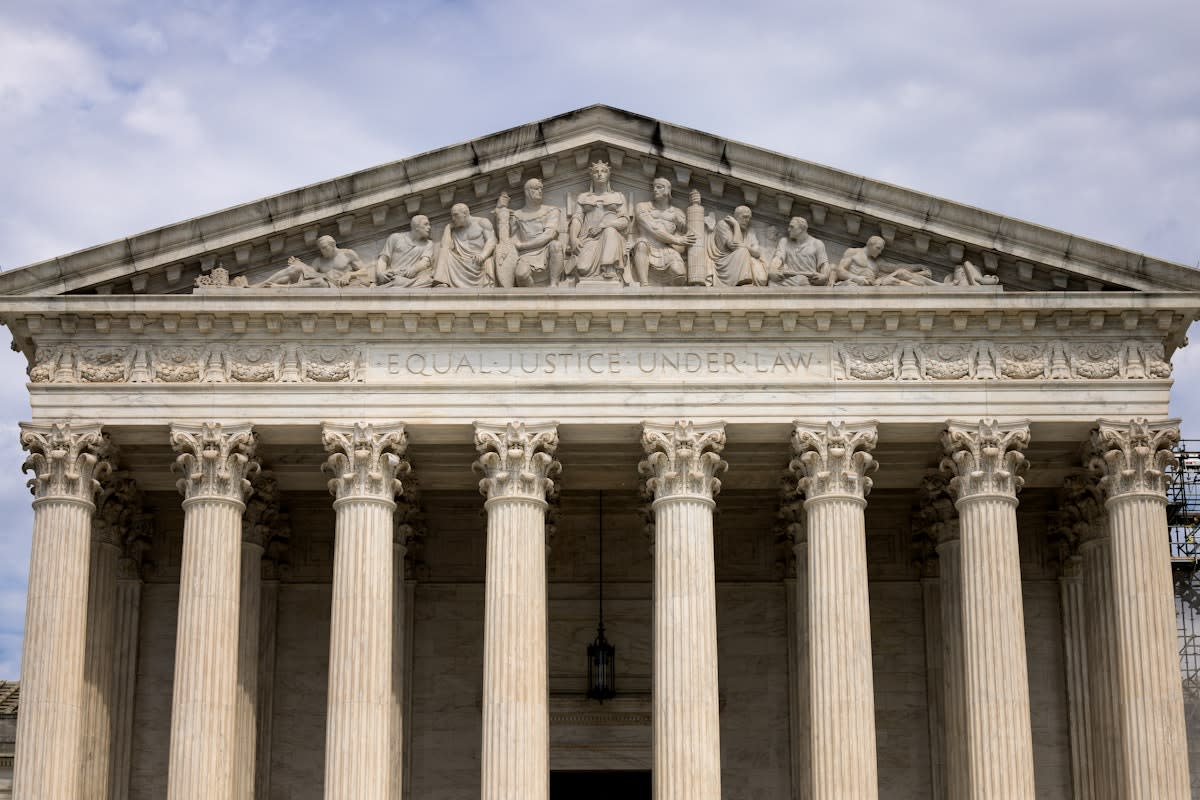Supreme Court Confirms Overturning of Extreme Abortion Ban—for Now

- Oops!Something went wrong.Please try again later.
- Oops!Something went wrong.Please try again later.
- Oops!Something went wrong.Please try again later.
The Supreme Court on Thursday officially dismissed a challenge to Idaho’s medical emergency abortion clause, noting that it was “improvidently granted,” meaning that the high court should never have accepted the case in the first place.
The decision, which comes after the ruling was accidentally posted to the court’s website on Wednesday, restores the right to emergency abortion in Idaho—but only for now. The ruling will send the case back to a lower appeals court to be retried.
The case, Moyle v. United States, concerned whether pregnant people in the Gem State were allowed to get abortions when receiving lifesaving, critical care at hospitals—as required by federal mandate under the Emergency Medical Treatment and Active Labor Act, or EMTALA—or whether they and their fetus would have been considered two separate people.
Idaho already has a near-total abortion ban, but the Alliance Defending Freedom, the far-right Christian legal advocacy group that argued the lawsuit on behalf of the state, utilized the case to advance the idea of fetal personhood. Under the stipulation, doctors would have been legally required to treat a fetus—no matter how underdeveloped—with the same medical care as the person carrying it, even if it posed a potentially life-threatening medical risk to the pregnant patient.
But drafting a state law that directly conflicts with medical care considered to be a minimum for Medicare-funded hospitals around the country was outside the realm of legal possibilities, wrote Justice Elena Kagan in a concurring opinion joined by Justices Sonia Sotomayor and Ketanji Brown Jackson.
“EMTALA requires hospitals to provide abortions that Idaho’s law prohibits. When that is so, Idaho’s law is preempted,” Kagan wrote. “The Court’s ruling today follows from those premises.”
Justice Samuel Alito, joined in a dissenting opinion by Justices Clarence Thomas and Neil Gorsuch, plainly disagreed with Kagan’s description, arguing that EMTALA does not “unambiguously” require Medicare-funded hospitals to provide abortions. The conservative justices also claimed that EMTALA, a federal statute, does not supersede state law or its control of local medical practices—even if that local restriction has skyrocketed the rate at which pregnant women are airlifted from hospitals to receive out-of-state care, increasing the burden and cost of care on neighboring states.
“Idaho never consented to any conditions imposed by EMTALA and certainly did not surrender control of the practice of medicine and the regulation of abortions within its territory,” Alito wrote.
In her own opinion, Jackson disagreed with the court’s decision to duck a final say on the matter, especially after allowing a stay that prevented critical abortion access to linger in the state while it deliberated its decision.
“It is too little, too late for the Court to take a mulligan and just tell the lower courts to carry on as if none of this has happened,” Jackson wrote. By failing to make a decisive ruling on EMTALA’s protections, Jackson warned that “storm clouds loom ahead.”
This story has been updated.


